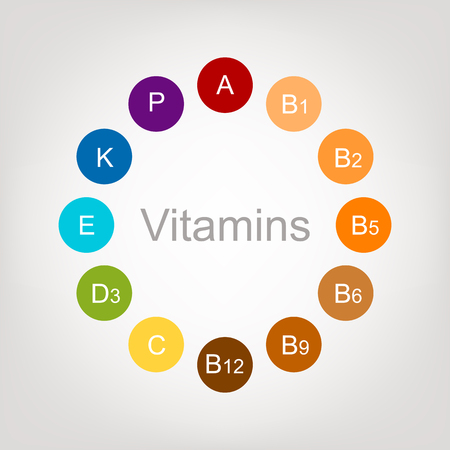Introduction to Vitamin Deficiencies in the UK
Vitamin deficiencies are a growing concern in the United Kingdom, especially as they relate to the ageing population. While the UK boasts a diverse food culture, several regional and lifestyle factors contribute to significant gaps in essential nutrient intake. Traditionally, British diets have relied heavily on starchy foods, processed items, and animal products, often at the expense of fresh fruits and vegetables. Furthermore, the UK’s temperate and frequently overcast climate limits natural sunlight exposure, making it harder for people to synthesise vitamin D—a key nutrient for bone health and immune function. Regional disparities also exist: urban areas may have better access to a variety of foods but higher rates of fast-food consumption, while rural regions might face challenges with food availability and affordability. Socioeconomic status, cultural backgrounds, and evolving dietary trends—such as vegetarianism or veganism—further shape individual risk profiles for deficiencies. Taken together, these factors create a unique landscape where certain vitamin deficiencies are more common and have notable impacts on health as people age.
2. Key Vitamins Commonly Lacking in the UK Diet
The UK’s climate, lifestyle, and dietary habits contribute to notable vitamin deficiencies across various age groups. Among these, Vitamin D and Vitamin B12 are particularly significant, alongside other essential nutrients. Understanding which vitamins are most commonly lacking can help target interventions for healthier ageing.
Vitamin D: The “Sunshine Vitamin” Challenge
Owing to the UK’s northern latitude and frequent overcast weather, many residents receive insufficient sunlight exposure to synthesise adequate levels of Vitamin D. This deficiency is especially prevalent during autumn and winter months. Older adults, individuals with darker skin tones, and those who spend extended periods indoors are at heightened risk. Insufficient Vitamin D impacts bone health, immune function, and has been linked with accelerated age-related decline.
Vitamin B12: Risks for Vegetarians and Older Adults
Vitamin B12 is crucial for nerve function and red blood cell formation. In the UK, low intake is frequently observed among older adults—whose absorption efficiency decreases with age—and those following vegetarian or vegan diets, since plant-based foods lack natural B12. Deficiency can result in fatigue, memory problems, and neurological issues that mimic or exacerbate symptoms of ageing.
Other Notable Deficiencies
While Vitamin D and B12 are prominent concerns, other vitamins also warrant attention:
| Vitamin | Main At-Risk Groups | Potential Impact on Ageing |
|---|---|---|
| Folate (B9) | Elderly, pregnant women, low-income households | Cognitive decline, increased cardiovascular risk |
| Vitamin C | Smokers, elderly, low fruit/veg consumers | Weakened immunity, slower wound healing |
| Vitamin A | Elderly, people with restrictive diets | Poor vision, skin health issues |
| Vitamin E | Elderly, those with fat-malabsorption conditions | Cellular damage, muscle weakness |
Summary of Key Deficiencies by Demographic Group
| Demographic Group | Common Deficiencies | Lifestyle/Dietary Factors in the UK Context |
|---|---|---|
| Elderly (65+ years) | D, B12, Folate, C | Reduced appetite, limited outdoor activity, chronic illness prevalence |
| Vegetarians/Vegans | B12, D (less from food), Iron* | No animal products; reliance on fortified foods or supplements* |
| Younger Adults/Children | D (seasonal), C (low fruit intake) | Sedentary indoor lifestyles; convenience food choices* |
| BAME Communities* | D (skin pigmentation affects synthesis) | Cultural dress codes reducing sun exposure* |
*Iron deficiency is also a concern but falls outside the primary vitamin focus of this discussion.
This landscape underscores the importance of targeted nutrition strategies to mitigate the impact of deficiencies on healthy ageing in the UK context.

3. Impact of Deficiencies on Ageing
Vitamin deficiencies, especially those common in the UK such as vitamin D, B12, and folate, can profoundly shape how individuals experience ageing. These nutritional shortfalls are not just numbers on a blood test – their effects manifest in mobility, cognitive function, and overall quality of life. For instance, low vitamin D levels are closely linked to weakened bones and muscles, making older adults more susceptible to falls and fractures. This directly impacts independence and increases the risk of hospital admissions. Similarly, a lack of vitamin B12 or folate may contribute to memory lapses, confusion, and even depression, all of which erode mental sharpness and social engagement as we age. Over time, the cumulative effect of these deficiencies can lead to reduced energy levels and poorer immune response, meaning infections or illnesses become harder to shake off. Ultimately, addressing vitamin deficiencies is not only about preventing disease but also about maintaining day-to-day vitality and dignity in later life.
4. Risk Factors Unique to the UK Population
Understanding why certain vitamin deficiencies are particularly prevalent in the UK requires examining several risk factors that are unique or more pronounced in this region. These include environmental, dietary, and socioeconomic influences that contribute to the challenge of maintaining optimal nutrient levels, especially as people age.
Limited Sunlight Exposure
The UKs geographic location means it receives less sunlight compared to many other parts of the world, especially during autumn and winter months. This has a direct impact on vitamin D synthesis, as the skin requires UVB rays to produce sufficient amounts. Older adults, who may spend more time indoors due to mobility issues or health concerns, are at even greater risk of deficiency.
| Factor | Impact on Vitamin D Levels |
|---|---|
| Latitude and Weather | Lower UVB exposure from October to March reduces natural vitamin D synthesis |
| Lifestyle (indoor living) | Further limits sun exposure, increasing deficiency risk in older adults |
Dietary Trends in the UK
Modern dietary habits also play a significant role. The traditional British diet can sometimes lack variety, with insufficient consumption of fresh fruits, vegetables, oily fish, and fortified foods. Vegetarianism and veganism have become increasingly popular; while these diets can be healthy when well-planned, they may increase risk for deficiencies in vitamins like B12 and D if not carefully managed.
| Dietary Pattern | Potential Deficiency Risk |
|---|---|
| Low intake of oily fish and eggs | Increased risk of vitamin D deficiency |
| Plant-based diets without supplementation | B12 deficiency is common if fortified foods or supplements are not included |
| Limited fruit and vegetable consumption | Greater likelihood of low vitamin C and folate levels |
Socioeconomic Factors Affecting Nutrition
Inequalities in income, education, and access to nutritious foods are well-documented across the UK. Lower-income households may struggle to afford high-quality food or supplements, increasing their vulnerability to deficiencies. Food deserts—areas with limited access to affordable fresh produce—can exacerbate these problems. Elderly individuals living alone or in care homes may also face barriers related to food preparation or limited dietary choices.
Sociodemographic Contributors to Vitamin Deficiencies:
- Income constraints: Reduced ability to purchase diverse foods or supplements.
- Lack of nutritional education: Less awareness of balanced diet requirements.
- Aging population: Increased susceptibility due to physiological changes affecting nutrient absorption.
- Cultural preferences: Traditional cooking methods may destroy certain vitamins (e.g., overboiling vegetables reduces vitamin C content).
This combination of environmental, dietary, and socioeconomic factors creates a unique landscape for vitamin deficiencies in the UK. Addressing these risks is essential for promoting healthy ageing across the population.
5. Detection, Prevention, and Supplementation
Detecting vitamin deficiencies early is vital, especially given the subtle symptoms that can develop with age. In the UK, GPs often start with a blood test if a deficiency is suspected—common checks include vitamin D, B12, and folate levels. The NHS provides clear guidelines for both testing and treatment, prioritising those at higher risk such as older adults, vegetarians, vegans, and individuals with limited sun exposure.
Current NHS Guidelines
The NHS recommends daily supplementation for certain groups: all adults are advised to consider taking a daily 10 microgram vitamin D supplement during autumn and winter when sunlight is scarce. For those over 65 or with darker skin, year-round supplementation is encouraged. Vitamin B12 supplementation may be necessary for those following plant-based diets or with absorption issues; this can be in the form of oral tablets or prescribed injections. Folate (vitamin B9) is usually managed through dietary advice unless a deficiency is confirmed by blood tests.
Practical Steps for Individuals
- Regular Check-Ups: Routine health checks can catch potential deficiencies before symptoms worsen.
- Balanced Diet: Focus on eating a varied diet rich in fruits, vegetables, whole grains, lean proteins, and dairy or fortified alternatives. Oily fish and eggs are good sources of vitamin D and B12 respectively.
- Sunlight Exposure: During sunnier months, aim for short periods outdoors to help the body synthesise vitamin D naturally—just be mindful of sun safety.
- Targeted Supplementation: Only take supplements when advised by a healthcare professional or if you fall into an at-risk group as outlined by the NHS.
Summary
A proactive approach combining regular screening, sensible dietary choices, and appropriate use of supplements can significantly reduce the impact of common vitamin deficiencies on ageing in the UK. Staying informed and following NHS guidance ensures individuals age more healthily and maintain their quality of life.
6. Conclusion and Future Considerations
In summary, vitamin deficiencies—particularly of vitamin D, vitamin B12, and folate—are prevalent across the UK, with older adults being especially at risk due to factors such as dietary habits, reduced sun exposure, and age-related absorption issues. These deficiencies have a significant impact on the ageing process, contributing to increased frailty, cognitive decline, bone health challenges, and a general reduction in quality of life for many elderly Britons.
Looking ahead, public health faces several ongoing challenges. The ageing population in the UK is growing rapidly, placing additional pressure on both healthcare systems and community support structures. There is a need for more robust screening programmes to identify those at risk earlier and deliver targeted interventions. Additionally, public awareness around the importance of adequate micronutrient intake remains limited; misconceptions about diet or supplementation persist even among health-conscious individuals.
Addressing these challenges will require a coordinated approach. On one hand, policy-makers must consider fortification strategies for staple foods and ensure that guidelines reflect the latest scientific evidence relevant to older demographics. On the other hand, local initiatives—such as community nutrition workshops or partnerships with GPs—could help bridge gaps in awareness and access to supplements where necessary. It will also be crucial to maintain an inclusive perspective that takes into account cultural diversity within the UK population.
Ultimately, improving vitamin status among older adults will depend on continued collaboration between government bodies, healthcare professionals, researchers, and community organisations. By prioritising this issue now, we have an opportunity not only to enhance the healthspan of our ageing citizens but also to reduce long-term pressures on NHS resources. Moving forward, ongoing research and innovation in nutritional science should inform future policies and practices aimed at ensuring healthy ageing for all across the UK.

